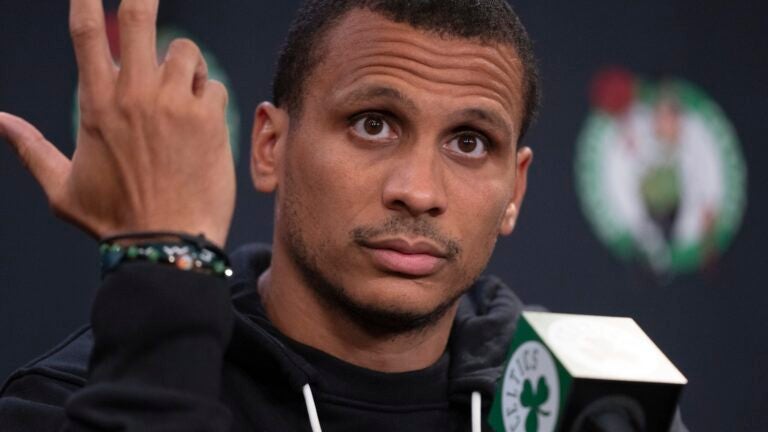Joe Mazzulla’s Bold Vision for Basketball: More Physicality and Power Plays
In a world where sports are often defined by their rules and regulations, Joe Mazzulla, the head coach of the Boston Celtics, is stirring the pot with some unconventional ideas. During a recent appearance on 98.5 The Sports Hub’s “Zolak & Bertrand,” Mazzulla expressed a desire to introduce elements from hockey into basketball, particularly the concept of power plays and, surprisingly, fighting. His comments have sparked a lively debate among fans and analysts alike about the nature of basketball as a sport and its entertainment value.
The Case for Power Plays
Mazzulla’s proposal to incorporate power plays into basketball is intriguing. He pointed out that basketball is one of the few major sports that doesn’t have a power play system. In hockey, when a player commits a foul, their team is penalized by playing short-handed, creating an opportunity for the opposing team to capitalize. Mazzulla suggested that similar rules could enhance the strategic depth of basketball.
He proposed that after a technical foul or a take foul, the offending team should play five-on-four for a limited time, allowing for a brief but significant advantage for the opposing team. “Let’s say you get a technical or let’s say you get a take foul,” Mazzulla explained. “You get the one shot, but you’re not really rewarded for that.” His vision includes a scenario where the fouled player is allowed to take a shot from the opposite side of the court, creating a unique twist on the traditional free throw.
A New Approach to Foul Management
Mazzulla’s ideas didn’t stop at power plays. He also suggested that the rules surrounding fouls could be restructured to make the game more dynamic. Instead of simply taking the ball out on the side after a foul, he proposed that the fouled player should be allowed to position themselves at the opposite half-court line, unable to leave the half-court circle for a few seconds. This would not only add a layer of strategy but also keep the game flowing in a more engaging manner.
The Entertainment Factor: Bring Back Fighting?
Perhaps the most controversial aspect of Mazzulla’s comments was his call for the return of fighting in basketball. He lamented the lack of physical confrontations on the court, arguing that they add an element of excitement and drama that is currently missing from the NBA. “If you want to talk about robbing the league of entertainment, what’s more entertaining than a little scuffle?” he asked, highlighting the thrill that comes with on-court altercations.
Mazzulla’s perspective is rooted in a broader discussion about the nature of sports and their entertainment value. He pointed out that in sports like baseball and hockey, players are allowed to clear the benches and engage in physical confrontations. “How come in baseball they’re allowed to clear the benches? How come in hockey they’re allowed to?” he questioned, suggesting that basketball, with its relatively low risk of injury compared to other sports, should allow for a bit of physicality.
A Coach’s Perspective on Physicality
This isn’t the first time Mazzulla has voiced his support for a more physical style of play. Following a heated moment during the playoffs last season between the Celtics and the Miami Heat, where players exchanged words after a hard foul, Mazzulla expressed his excitement about the confrontation. “I was kind of excited about the whole situation. So I enjoyed watching it,” he said, indicating that he sees value in the emotional and physical intensity that can arise during games.
His comments resonate with a segment of fans who yearn for a return to a more rugged style of basketball, reminiscent of the NBA’s earlier days when physical play was more commonplace. However, they also raise questions about player safety and the evolving nature of the game, which has increasingly prioritized skill and finesse over brute strength.
The Broader Implications for the NBA
While Mazzulla’s ideas may seem radical to some, they reflect a growing conversation about the direction of the NBA. As the league continues to evolve, balancing entertainment with player safety remains a critical challenge. Mazzulla’s proposals could be seen as a way to inject more excitement into the game, but they also risk alienating fans who appreciate the current emphasis on skill and sportsmanship.
As the Celtics prepare for another season, Mazzulla’s vision for a more physical and dynamic game could influence not only his coaching strategy but also the broader dialogue about what basketball should be. Whether or not the NBA is ready to embrace these changes remains to be seen, but one thing is clear: Joe Mazzulla is not afraid to challenge the status quo.
